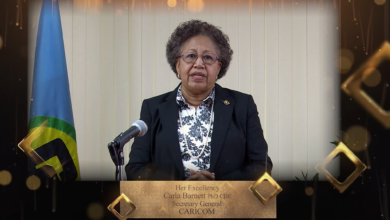It is unfortunate that opponents to Jamaica's accession to the civil and criminal jurisdiction of the Caribbean Court of Justice (CCJ) perpetrate and perpetuate myths about the malleability of the CCJ and constitutional protection enjoyed by the United Kingdom-based Privy Council, which it would replace as this country's court of last resort. Not even the Privy Council believes this.
Indeed, in their 2004 ruling in which they held as unconstitutional the process by which the then Jamaican Government sought to install the CCJ into the Jamaican Constitution, the Privy Council judges readily conceded that their court enjoyed only limited protection in that it could be easily removed.
Said Lord Bingham of Cornhill at Paragraph 16 of that judgment: “As already recorded, Dr [Lloyd] Barnett for the appellants accepts in argument that Section 110 of the Constitution, providing for appeal to the Privy Council, could have been repealed by the votes of a majority of members of each House, since that section is not entrenched. The result would have been to constitute the Court of Appeal [of Jamaica] as the ultimate appellate tribunal in and for Jamaica.”
The point is that any government of Jamaica with 32 members of the House of Representatives, given its in-built majority in the appointed Senate, could conceivably expunge the Privy Council once that bill lies on the table six months prior to, and after, the debate.
The constraint arises, the English judges held, if the Parliament, as it is now attempting to do, wishes to establish a new tribunal of superior jurisdiction to the Court of Appeal, “without adopting the procedures mandated by the constitution for the amendment of entrenched provisions”, thereby robbing the new court of the insulation enjoyed by Jamaica's first instance and appeal judges.
Hurdle ot passing the Bill
These protections, though, while entrenched, are not deeply so. In other words, to remove or change the conditions under which either of these courts operate requires the approval of two-thirds of all the members of both chambers of Parliament, but not a referendum. It is this route, as the Privy Council implied, that should be taken, that the government is seeking to travel with regard to the bills now before the legislature. The difficulty faced by the Government is that it requires at least one of the nine Opposition appointees in the 21-member Senate to vote with it to have the two-thirds majority for the law to pass.
We hope that the Jamaica Labour Party relents and votes with the Government to provide for the establishment of a final court that has far greater insulation than any court in the world and would be far more accessible to the average Jamaican than the Privy Council.
On the matter of accessibility, it is not enough, and certainly trite, to argue the benevolence of British lawyers, who offer their services pro bono, in some criminal matters, mostly murder convictions, as sufficient for Jamaicans – as though access to justice applies only to persons convicted of capital crimes. It is an even worse slur on the court, and a palpably disingenuous argument, to brand the CCJ as a hanging court. Its jurisprudential quality and integrity, since it has operated, can't be credibly questioned.
Further, funding of the CCJ is a non-issue. The US$100m trust fund, to which Jamaica subscribed, was long ago paid up.
The opinions on this page, except for the above, do not necessarily reflect the views of The Gleaner. To respond to a Gleaner editorial, email us: editor@gleanerjm.com or fax: 922-6223. Responses should be no longer than 400 words. Not all responses will be published.





